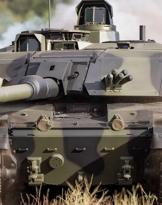This is probably the most sober assessment, by the State Department, never carried out in stark contrast to the recent and exciting statements by the White House (denied a few hours later with the defeat of Ramadi) that had described the Islamic State on the defensive.
The problem is that the United States is still trying to reconstruct exactly what happened in the province of Anbar, during the Islamic State offensive. The goal of the Americans is now to reorganize the Iraqi army units that have been routed and massacred in Ramadi (also due to somewhat questionable attitudes of some departments that have fled, leaving the soldiers on them to the massacre they did rely).
The Islamic state is no longer considered defensive, as stated by the Obama administration, but it is considered an enemy that will require "years of effort" to be defeated. Years.
The State Department analysis confirms what the experts have always known. That of ISIS is an asset different from anything else faced by the West. The Islamic State is a unique enemy with around 22 thousand fighters from 100 countries.
To give an example: only foreigners who have voted for the cause of the caliphate are twice the forces faced by the Americans in Afghanistan. And they are far more trained.
The Islamic State is superior in every respect even compared to its precursor in Iraq, Al-Qaida. Ramadi's campaign demonstrated the strategy adopted and the devastating asymmetric techniques used against a regular army only well armed, but poorly trained and unmotivated.
We know that during the Ramadi battle, the Islamic state coordinated thirty suicide attacks. The explosive power of ten of the thirty attacks carried out was similar to the bomb that devastated the federal building in Oklahoma City twenty years ago.
There is no joke with ISIS - they say now from the State Department - we did not think they could operate with such synergy and effectiveness.
And to say that up to forty-eight hours after the defeat of Ramadi, the White House, the Pentagon and the State Department themselves spoke of defeat as "a setback", reaffirming the effectiveness of the strategy adopted by the United States against the state Islamic.
The Americans and Loyalist troops find themselves facing an enemy that, instead, continues to gain ground. It is impossible to think of the reconquest of Mosul, the second city of Iraq captured last June. Before Mosul, the province of Anbar must be resumed. Translated means to resume from Baghdad to Ramadi until reaching Haditha.
Meanwhile, some details of the Ramadi massacre emerge. The terrorists first used an armored bulldozer to break down the enormous concrete safety barriers that protected the city's government center. Once the breach was created, the fundamentalists sent a small armored convoy consisting of a dumper and a Humvee: both vehicles were loaded with explosives. The blast was devastating. A few seconds later the offensive began in the main districts of the city.
The Iraqi troops have never really fought, while the reinforcements sent on Sunday evening have fled, leaving their companions to their own equipment for the massacre.
"The situation remains extremely serious, but it is not like when we lost Mosul. We are re-equipping the Iraqi army and next month we will send another thousand anti-tank systems. Once the regular army has recovered, we will plan a series of attacks to regain lost ground ".
Government forces were reinforced by a Shiite contingent. This means that the next attacks will see Shiite soldiers attacking predominantly Sunni areas. In the middle the United States and their raids that will have to provide cover to the militias that answer to the Iranian government.
Then there is the problem of the Sunni tribes who would be willing to fight the Islamic State, but who have not yet received the required equipment (obviously of American production).
Prime Minister Haider al-Abadi is allegedly creating a national force, recalling the 24.000 police officers from Anbar who have lost their jobs with the fall of the regime.
The State Department also added that US special forces are working closely with the three Sunni tribes on an advanced base in Haditha, in the far west of Anbar, to coordinate their operations directly. No program, however, to free the Eastern Anbar.
It's like the Wild West - the State Department concludes - will be really tough.
Franco Iacch
(photo: US DoD archive)












